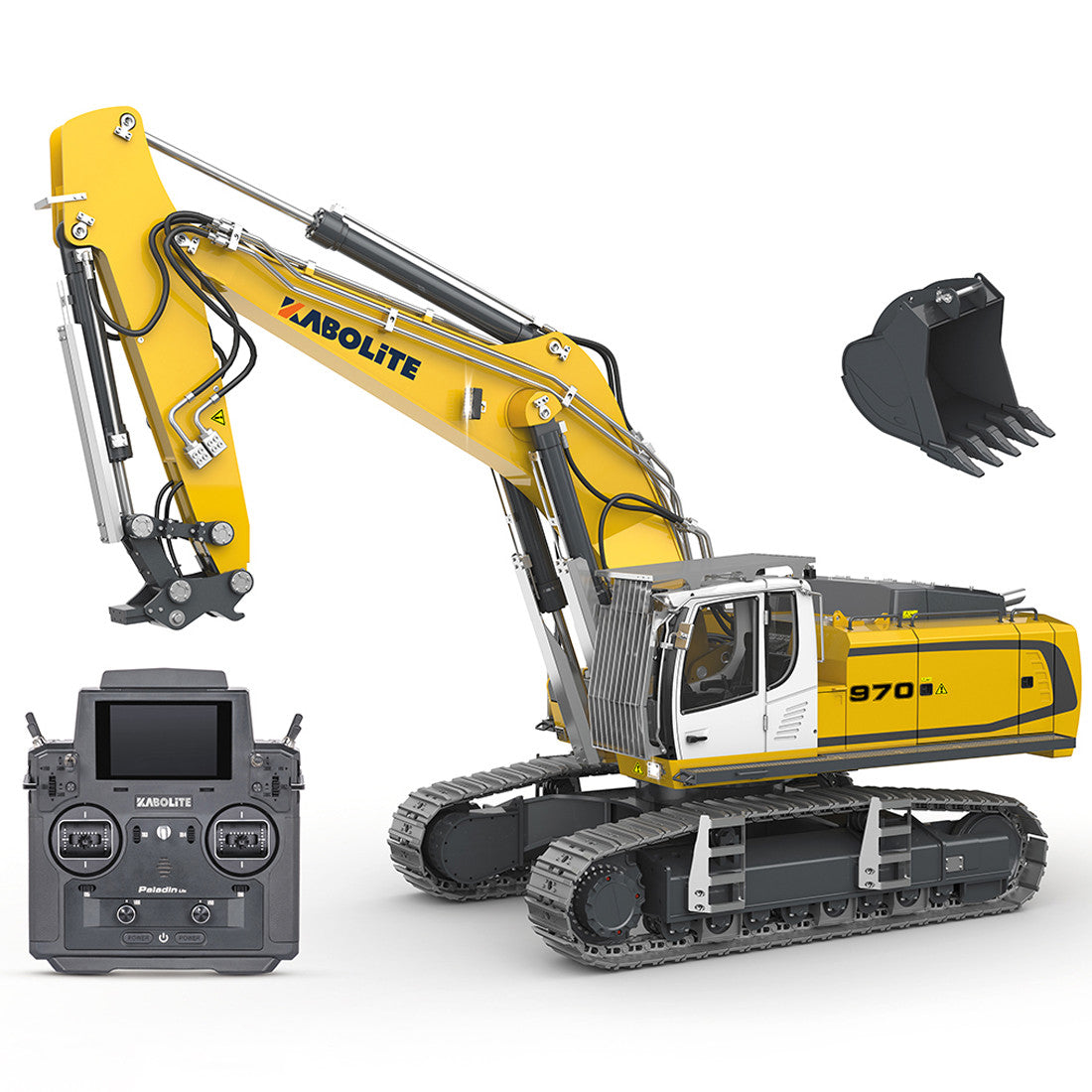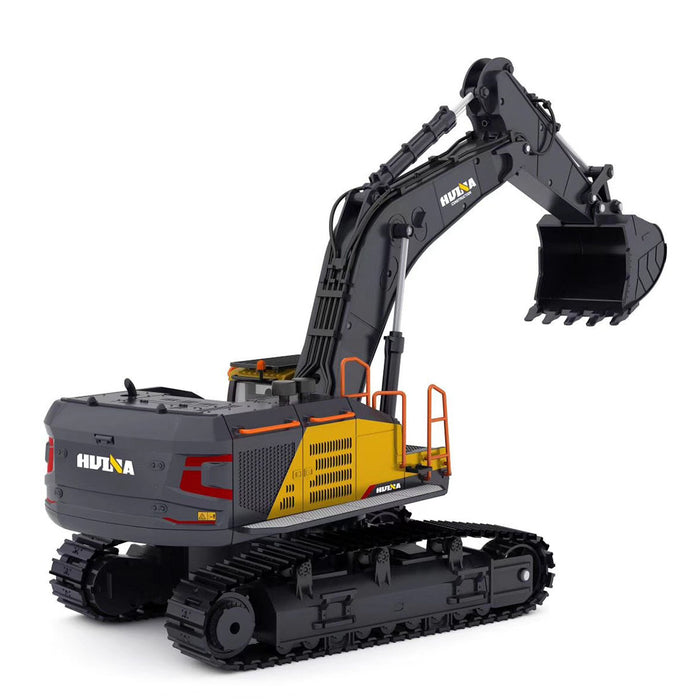Understanding How Excavator Functions and Its Effect On Performance
Excavators play a crucial role in construction and mining procedures, depending on a complicated interaction of hydraulic and mechanical systems. Their ability to carry out a variety of tasks hinges on both their layout and the innovation incorporated within. Recognizing these parts can significantly influence functional efficiency and productivity. As developments proceed to reshape the industry, one need to take into consideration just how these changes will influence future techniques and efficiency.
The Essentials of Excavator Mechanics

The Role of Hydraulic Systems in Excavators
At the heart of excavator procedure lies the hydraulic system, which plays a critical function in powering the machine's functions and activities. This system utilizes pressurized hydraulic liquid to transfer energy, allowing different actions such as digging, training, and moving. By utilizing the principles of hydraulics, excavators can execute tasks with amazing accuracy and pressure, improving total operational efficiency.The hydraulic system includes essential elements, consisting of pumps, valves, and cylinders, which collaborate to regulate the flow and instructions of the fluid. When the operator involves the controls, the hydraulic fluid is directed to details cyndrical tubes, translating the operator's commands into physical movement. This mechanism permits smooth and responsive activities, which are important in building and excavation environments. double e volvo rc excavator. The efficiency of the hydraulic system directly influences the efficiency and flexibility of the excavator, making it a vital component in modern excavation processes
Trick Parts of an Excavator
Comprehending the vital parts of an excavator is essential for understanding how this powerful maker operates. An excavator contains numerous considerable aspects, consisting of the undercarriage, house, pail, boom, and arm. The undercarriage offers stability and movement, frequently featuring tracks or wheels to navigate various terrains. Your home includes the engine and hydraulic systems, allowing the operator to manage activity and power the equipment. The boom prolongs from the home, making it possible for vertical reach, while the arm connects to the container, facilitating digging and training operations.Additionally, the cab houses the operator, furnished with controls for accurate maneuvering. Each of these parts plays an essential function in the excavator's general capability, contributing to its performance and efficiency on construction websites. Comprehending these components assists in enhancing and preserving excavator performance, ensuring jobs are completed safely and effectively.
Add-on Versatility and Its Advantages
Accessory adaptability is an important aspect of excavators, making it possible for drivers to switch in between different devices customized for particular jobs. This versatility not just enhances work efficiency however likewise adds to cost-effectiveness by reducing the requirement for several devices. Comprehending the different types of add-ons readily available can significantly impact the overall performance and performance of an excavator on task websites.
Types of Accessories
While excavators are primarily acknowledged for their excavating capabilities, their true flexibility exists in the broad selection of attachments readily available. These accessories boost the excavator's performance, allowing it to perform various jobs past excavation. Usual accessories consist of buckets (for excavating and scooping), hydraulic thumbs (for grasping products), and augers (for piercing holes) Grapples are made use of for handling and relocating particles, while rippers can separate difficult surface areas. Other specialized add-ons, such as plates and rakes, allow excavators to adapt to particular job demands. This diversity not just boosts the equipment's energy throughout different fields, including building and construction, landscape design, and demolition, yet also permits operators to customize their devices to fulfill certain project demands successfully.
Increased Task Effectiveness
Making best use of work efficiency is a key advantage of making use of different excavator accessories. Different accessories permit an excavator to execute numerous tasks without requiring to switch devices, conserving valuable time and labor. Making use of a hydraulic hammer can damage concrete while a bucket add-on can dig deep into soil, allowing a smooth process. This convenience reduces downtime related to tools changes and enhances productivity on-site. Furthermore, specialized attachments improve precision in tasks such as grading or landscaping, leading to better results. The capability to adapt to different work needs not only improves procedures but additionally reduces the demand for added machinery, ensuring that tasks are finished swiftly and efficiently. Overall, attachment adaptability substantially contributes to increased job performance in excavation work.
Cost-Effectiveness and Convenience
Cost-effectiveness is a significant advantage get redirected here of utilizing versatile excavator accessories. These add-ons enable a single excavator to execute several tasks, minimizing the need for additional machinery and labor - double e volvo rc excavator. By switching over between buckets, hammers, and grapples, drivers can deal with numerous projects, from digging to demolition, therefore making the most of tools usage. This versatility not only decreases functional prices yet additionally lessens downtime connected with altering devices. Furthermore, the capacity to personalize excavators with specialized attachments improves performance, as they can efficiently take care of diverse jobs according to job demands. In conclusion, the mix of cost-effectiveness and flexibility in excavator accessories adds to improved functional efficiency and source appropriation in building and construction and excavation jobs

Advanced Modern Technology in Modern Excavators
Modern excavators are increasingly geared up with advanced innovation that transforms excavation processes. Automation streamlines operations, while improved fuel effectiveness lowers operational expenses. Furthermore, smart control systems enhance accuracy and safety, marking a significant advancement in excavation tools.
Automation in Excavation Processes
As excavation modern technology develops, automation has become an essential element in improving performance and precision on job sites. Modern excavators are equipped with innovative automated systems that assist in jobs such as grading, excavating, and trenching with very little operator treatment. These systems make use of sensors, GPS, and maker learning formulas to ensure precise placing and deepness control, substantially reducing the margin for mistake. In addition, automation enables drivers to focus on critical decision-making instead than manual controls, resulting in boosted performance in general. Such technologies not just streamline process but also boost safety by lessening human mistake in complex procedures. The combination of automation in excavation processes represents a considerable innovation in building and construction innovation, driving the sector in the direction of greater effectiveness and effectiveness.
Improved Fuel Efficiency
Advancements in about his innovation have additionally resulted in significant enhancements in gas efficiency for modern excavators. Modern makers are geared up with innovative engines that optimize power outcome while minimizing fuel consumption. These engines make use of ingenious combustion technologies, such as turbocharging and direct gas injection, to improve performance and effectiveness. Additionally, light-weight products in building and construction minimize general weight, allowing for less power expense during procedure. The introduction of variable rate controls makes it possible for drivers to adjust engine efficiency according to specific tasks, even more minimizing fuel use. Therefore, these enhancements not only reduced functional expenses but additionally add to ecological sustainability by minimizing emissions. Generally, boosted fuel performance in excavators is a crucial development that strengthens efficiency and economic practicality in the construction sector.
Smart Control Equipment
While drivers navigate increasingly complex job websites, smart control systems in excavators have actually become crucial tools for boosting efficiency and precision. These advanced modern technologies use sensors and formulas to keep track of numerous criteria such as lots weight, terrain conditions, and operational performance. By immediately adjusting hydraulic features, wise systems maximize device efficiency, resulting in boosted productivity and lowered wear on parts. Additionally, drivers gain from instinctive user interfaces that offer real-time comments and diagnostics, enabling informed decision-making. This combination of technology not just simplifies procedures yet likewise reduces human error, adding to more secure work settings. As the construction market continues to progress, smart control systems will play an important role in shaping the future of excavator performance and performance.
Enhancing Functional Effectiveness With Excavators
Excavators play a necessary duty in improving operational effectiveness across various building and excavation jobs. Their flexibility enables multiple tasks, including product, training, look at more info and excavating handling, which streamlines process and minimizes the demand for added equipment. With powerful hydraulic systems, excavators can execute sturdy jobs with precision, significantly reducing the time needed to full jobs. The combination of sophisticated innovation, such as general practitioner and automated controls, additionally optimizes their operation, making it possible for operators to achieve higher precision and lower material waste. In addition, modern excavators are made to eat much less fuel and minimize exhausts, adding to both expense savings and environmental sustainability. By using excavators efficiently, building groups can boost productivity, satisfy project deadlines, and enhance total site monitoring. This multifunctionality and performance make excavators important devices in the contemporary building landscape.
The Future of Excavators in Building and Mining Industries
As the building and mining industries evolve, the future of excavators is poised for substantial makeover driven by technical technology and changing functional needs. Advances in automation and artificial knowledge are reshaping excavator capabilities, enabling enhanced accuracy and effectiveness in operations. Autonomous excavators are emerging, decreasing the demand for human intervention and reducing the threat of accidents.Moreover, the assimilation of telematics and IoT technology allows real-time tracking of equipment efficiency and predictive upkeep, optimizing uptime. Green styles, consisting of electrical and hybrid models, are getting traction, straightening with sustainability objectives within the industry.Additionally, the use of advanced products and lighter styles enhances fuel performance while keeping efficiency criteria. As these fads progression, excavators will certainly play an essential function in satisfying the boosting needs for performance and safety in building and construction and mining, ultimately changing operational landscapes.
Often Asked Concerns
Just How Do Climate Condition Impact Excavator Performance?

Climate condition substantially influence excavator efficiency, as rain and mud can prevent traction and security, while severe temperatures might affect hydraulic systems. Operators has to adjust to these variables to guarantee excellent performance and security during operations.
What Precaution Should Operators Comply With While Utilizing Excavators?
Safety and security measures for excavator drivers consist of using suitable personal protective equipment, carrying out pre-operation evaluations, making sure appropriate interaction with ground employees, maintaining a safe range from overhead hazards, and sticking to well-known operational methods to stop mishaps.
Exactly How Frequently Should Excavators Be Preserved for Optimal Performance?
Excavators ought to be maintained routinely to assure peak performance, commonly every 250 operating hours or as specified by the supplier. Routine checks improve dependability, prevent unexpected failures, and prolong the life expectancy of the devices.
What Is the Typical Life-span of an Excavator?
The average life-span of an excavator generally ranges from 10,000 to 15,000 hours of procedure. Elements influencing longevity include upkeep practices, operating problems, and the top quality of the equipment itself, influencing general efficiency and efficiency.

Can Excavators Operate Unequal Surface Effectively?
Excavators can operate effectively on uneven terrain because of their articulated styles and flexible tracks. These features allow them to maintain stability and traction, making it possible for effective procedure in tough settings commonly run into in building and landscaping jobs. Each of these components plays a crucial duty in the excavator's overall performance, adding to its effectiveness and performance on building sites. Optimizing work effectiveness is a primary advantage of utilizing various excavator accessories. While operators navigate significantly complicated work websites, wise control systems in excavators have emerged as vital tools for improving performance and precision. Excavators play a necessary duty in improving functional performance throughout different construction and excavation projects. Developments in automation and synthetic knowledge are improving excavator capacities, allowing for improved precision and effectiveness in procedures.